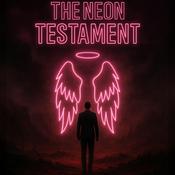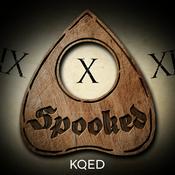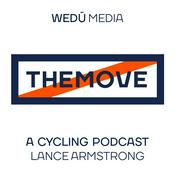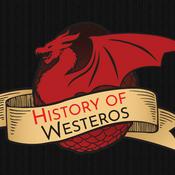Available Episodes
5 of 297
- Searching for CryptidsWhen I was growing up, Bigfoot appeared regularly on the covers of supermarket tabloids, so I assumed he was a joke. But I’ve discovered that he’s part of a larger and even stranger world of cryptids – creatures that people believe are real but haven’t been scientifically verified. Cryptids are having a cultural moment, and they’re a vital part of folklore. Native Alaskan storyteller James Dommek Jr. discusses his podcast Alaska Is The Center of The Universe and his audiobook Midnight Son. James has been collecting tribal stories about cryptids because he sees them as cultural treasures that need to be preserved. I also talk with J.W. Ocker, author of The United States of Cryptids: A Tour of American Myths and Monsters, about why so many small towns in the U.S. are embracing their local cryptids as a last ditch effort to revitalize their economies. This episode is sponsored by MiracleMade and Uncommon Goods Get 15% off your order at uncommongoods.com/imaginary. Go to TryMiracle.com/IMAGINARY to save over 40%, and when you use promo code IMAGINARY, you’ll get an extra 20% off plus a free 3-piece towel set. Learn more about your ad choices. Visit podcastchoices.com/adchoices--------40:48
- This Animated LifeAs longtime listeners know, I worked in the animation industry before switching careers and going into broadcasting. Today’s episode features a trio of conversations that trace the history of animation in my lifetime, and my life in animation. The interviews come from Between Imaginary Worlds, a chat show that’s available exclusively to listeners who pledge $5 a month or more on Patreon. Act I: I bond with comic book and children’s book author Judd Winick over the creepy world of 1970s children’s TV – which scared us as kids but makes us oddly nostalgic today. Act II: My friend Caleb Meurer and I reminisce about his experience working with the original crew of SpongeBob at Nickelodeon, and how the creator of SpongeBob indirectly told me I was in the wrong field. Act III: Aidan Sugano and Denis-Jose Francois talk about the heartfelt effort it took for the animation studio DNEG to make the film Nimona after Disney dropped the project. This week’s episode is sponsored by The Perfect Jean and Uncommon Goods. Get 15% off your order with the code IMAGINARY15 at theperfectjean.nyc Get 15% off your order at uncommongoods.com/imaginary. Learn more about your ad choices. Visit podcastchoices.com/adchoices--------40:53
- Bringing Guillermo del Toro's Frankenstein to LifeWhen director Guillermo del Toro asked Tamara Deverell to be the production designer on his film adaptation of Frankenstein, she had a good idea of what he wanted. Del Toro had been dreaming of making a Frankenstein movie for years, and she had worked with him on several projects before. She told me they’re so much sync, “I find with Guillermo, it’s not speaking in words, it’s speaking with images.” But that didn’t make the production design any less challenging. We discuss where Tamara looked for inspiration, why it’s important for her to build physical sets no matter the size, and how she reimagined the signature set piece of every Frankenstein adaptation -- the lab where The Creature comes to life. Learn more about your ad choices. Visit podcastchoices.com/adchoices--------34:54
- Creature Double FeatureIn honor of the spooky season, we present two monstrous origin stories --Mary Shelley’s Frankenstein and Bram Stoker’s Dracula. We know when these books were written in the 19th century. But what inspired the imaginations of the rebellious teenager Mary Shelley, or the beleaguered theatrical promoter Bram Stoker? I talk with biographer Charlotte Gordon and Professors Gillen D'Arcy Wood and Ron Broglio about how “The Year Without a Summer” may have sparked storms in Mary Shelley’s mind. And I talk with UC Davis professor Louis Warren about why he believes an American entertainer was the unlikely model for Count Dracula. Featuring readings by Lily Dorment and John Keating. This episode is a combination of two previous episodes that were broken apart, reassembled and brought back to life. This episode is sponsored by The Perfect Jean and Uncommon Goods To get 15% off your next gift, go to uncommongoods.com/imaginary To get 15% off your first order use the code IMAGINARY15 when you check out at theperfectjean.nyc Learn more about your ad choices. Visit podcastchoices.com/adchoices--------41:58
- Music of a Forbidden PlanetIn the 1950s, the avant-garde music scene in New York and the movie studios of Los Angeles might have seemed like opposite ends of a cultural spectrum. But they came together (and blew apart) when MGM hired Louis and Bebe Barron to write the score for the sci-fi classic Forbidden Planet. It was the first all-electronic score for a Hollywood film, but not everyone was ready for the future of film music. I talk with Louis’ son David Barron, composer Dorothy Moskowitz, University of Chicago associate professor Jennifer Iverson, and broadcaster and writer John Cavanagh about how the Barrons built a Rube Goldberg-style electronic music studio long before electronic music could be generated with the push of a button -- and why it took decades for their work to be fully appreciated. Thanks to Thomas Rhea (author of Electronic Perspectives: Vintage Electronic Musical Instruments) for permission to use audio from his 1998 interview with Bebe Barron. You can learn more about the Louis and Bebe Barron archive at Forgotten Futures. Philip Shorey’s orchestra is touring with his new score to the 1925 film The Phantom of The Opera. This episode is sponsored by Remi. Go to shopremi.com/IMAGINARY and use the code IMAGINARY to get up to 50% off your nightguard at checkout. Learn more about your ad choices. Visit podcastchoices.com/adchoices--------35:18
More Arts podcasts
Trending Arts podcasts
About Imaginary Worlds
Imaginary Worlds sounds like what would happen if NPR went to ComicCon and decided that’s all they ever wanted to cover. Host Eric Molinsky spent over a decade working as a public radio reporter and producer, and he uses those skills to create thoughtful, sound-rich episodes about science fiction, fantasy, and other genres of speculative fiction. In this award-winning podcast, Eric talks with filmmakers, screenwriters, novelists, comic book artists, game designers, and anyone who works in the field of make-believe about how they craft their worlds. He also talks with academics and fans about why we suspend our disbelief, and what happens if the spell is broken. Imaginary worlds may be set on distant planets or parallel dimensions, but they are crafted here on Earth, and they’re always about us and our lived experiences.
Podcast websiteListen to Imaginary Worlds, The Neon Testament and many other podcasts from around the world with the radio.net app
Get the free radio.net app
- Stations and podcasts to bookmark
- Stream via Wi-Fi or Bluetooth
- Supports Carplay & Android Auto
- Many other app features
Get the free radio.net app
- Stations and podcasts to bookmark
- Stream via Wi-Fi or Bluetooth
- Supports Carplay & Android Auto
- Many other app features

Imaginary Worlds
Scan code,
download the app,
start listening.
download the app,
start listening.







































